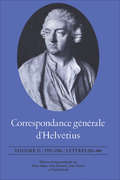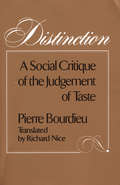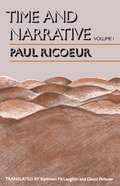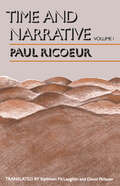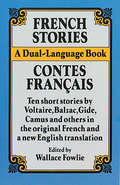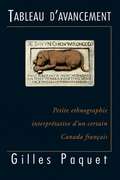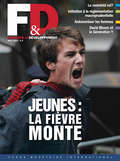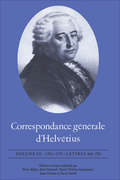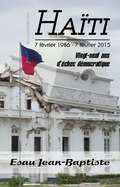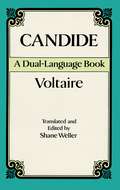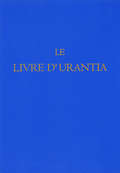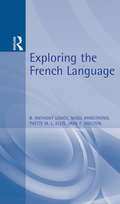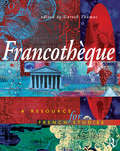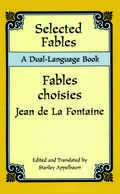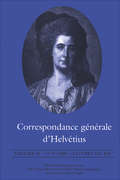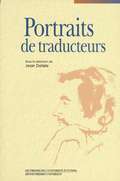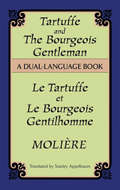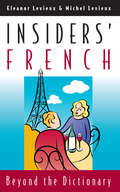- Table View
- List View
Correspondance générale d'Helvétius, Volume II: 1757-1760 / Lettres 250-464
by Allan Dainard Claude Adrien Helvétius David Smith Jean Orsoni Peter AllanThis second volume of the Correspondance générale d'Helvétius covers the period of the publication and reception of Helvétius' controversial first work, De l'Esprit (1758). It begins with a letter of January 1757, in which Helvétius recounts the attempt by Damiens on the life of Louis XV, and ends in December 1760 when the author, having been attacked on the stage of the Théatre-Francais but eulogized in foreign journals, is contemplating voluntary exile. In the meantime De l'Esprit provoked an uprecedented outcry from the court and from the religious and civil authorities. Denigrated as the epitome of all dangerous philosophic trends of the age, condemned as atheistic, materialistic, sacriligious, immoral, and subversive, it enjoyed an immense succes de scandale. Rather than examining the puzzles and paradoxes which surround the affaire de l'Esprit, this volume presents the documents upon which solutions may be based. Helvétius' own letters, often written hastily, under stress, and in fear they might be opened by the Cabinet noir, are less revealing than the letters between other protagonists in the affaire: the Cardinal de Bernis and the Duke de Choiseul, Jean-Omer Joly de Fleury, Malesherbes, Saint-Florentin, Tercier, and Louis xv himself. It is these letters, together with the appendixes containing edicts, retractions, an condemnations that shed new light not only on the development of the affaire but also on the complex workings of the ancien regime
Distinction: A Social Critique of the Judgement of Taste (Routledge Classics Ser.)
by Pierre BourdieuNo judgment of taste is innocent. In a word, we are all snobs. Pierre Bourdieu brilliantly illuminates this situation of the middle class in the modern world. France’s leading sociologist focuses here on the French bourgeoisie, its tastes and preferences. Distinction is at once a vast ethnography of contemporary France and a dissection of the bourgeois mind. In the course of everyday life people constantly choose between what they find aesthetically pleasing and what they consider tacky, merely trendy, or ugly. Bourdieu bases his study on surveys that took into account the multitude of social factors that play a part in a French person’s choice of clothing, furniture, leisure activities, dinner menus for guests, and many other matters of taste. What emerges from his analysis is that social snobbery is everywhere in the bourgeois world. The different aesthetic choices people make are all distinctions—that is, choices made in opposition to those made by other classes. Taste is not pure. Bourdieu finds a world of social meaning in the decision to order bouillabaisse, in our contemporary cult of thinness, in the “California sports” such as jogging and cross-country skiing. The social world, he argues, functions simultaneously as a system of power relations and as a symbolic system in which minute distinctions of taste become the basis for social judgment. The topic of Bourdieu’s book is a fascinating one: the strategies of social pretension are always curiously engaging. But the book is more than fascinating. It is a major contribution to current debates on the theory of culture and a challenge to the major theoretical schools in contemporary sociology.
Time and Narrative, Volume 1
by Paul Ricoeur Kathleen Mclaughlin David PellauerTime and Narrative builds on Paul Ricoeur's earlier analysis, in The Rule of Metaphor, of semantic innovation at the level of the sentence. Ricoeur here examines the creation of meaning at the textual level, with narrative rather than metaphor as the ruling concern. Ricoeur finds a "healthy circle" between time and narrative: time is humanized to the extent that it portrays temporal experience. Ricoeur proposes a theoretical model of this circle using Augustine's theory of time and Aristotle's theory of plot and, further, develops an original thesis of the mimetic function of narrative. He concludes with a comprehensive survey and critique of modern discussions of historical knowledge, understanding, and writing from Aron and Mandelbaum in the late 1930s to the work of the Annales school and that of Anglophone philosophers of history of the 1960s and 1970s. "This work, in my view, puts the whole problem of narrative, not to mention philosophy of history, on a new and higher plane of discussion."--Hayden White, History and Theory "Superb. . . . A fine point of entrance into the work of one of the eminent thinkers of the present intellectual age."--Joseph R. Gusfield, Contemporary Sociology
Time and Narrative, Volume 1 (Time and Narrative)
by Paul Ricoeur David Pellauer Kathleen McLaughlinTime and Narrative builds on Paul Ricoeur's earlier analysis, in The Rule of Metaphor, of semantic innovation at the level of the sentence. Ricoeur here examines the creation of meaning at the textual level, with narrative rather than metaphor as the ruling concern. Ricoeur finds a "healthy circle" between time and narrative: time is humanized to the extent that it portrays temporal experience. Ricoeur proposes a theoretical model of this circle using Augustine's theory of time and Aristotle's theory of plot and, further, develops an original thesis of the mimetic function of narrative. He concludes with a comprehensive survey and critique of modern discussions of historical knowledge, understanding, and writing from Aron and Mandelbaum in the late 1930s to the work of the Annales school and that of Anglophone philosophers of history of the 1960s and 1970s. "This work, in my view, puts the whole problem of narrative, not to mention philosophy of history, on a new and higher plane of discussion."—Hayden White, History and Theory "Superb. . . . A fine point of entrance into the work of one of the eminent thinkers of the present intellectual age."—Joseph R. Gusfield, Contemporary Sociology
French Stories/Contes Francais: A Dual-Language Book (Dover Dual Language French)
by Wallace Fowlie"The selections are good and the translations are excellent."-Germaine Brée, New York UniversityDrawn from two centuries of French literature, these superb selections by ten great writers span a wide variety of styles, philosophies, and literary creeds. The stories reflect not only the beliefs of various literary schools, but the preoccupations of French civilization, at the various times of their composition, with the metaphysical and psychological problems of man. Contents include Micromégas (Voltaire), La Messe de l'Athée (Honoré de Balzac), La Légende de Saint Julien l'Hospitalier (Gustave Flaubert), Le Spleen de Paris (Charles Baudelaire), Menuet (Guy de Maupassant), Mort de Judas (Paul Claudel), Le Retour de l'Enfant Prodigue (André Gide), Grand-Lebrun (François Mauriac), Le Passe-Muraille (Marcel Aymé), and L'Hôte (Albert Camus). Students of French, or those who wish to refresh their knowledge of the language, will welcome this treasury of masterly fiction. The selections are arranged chronologically, allowing the reader to witness the development of French literary art -- from Voltaire to Camus. Excellent English translations appear on pages facing the Original French. Also included are a French-English vocabulary list, textural notes, and exercises.
Les followers de Megan: Un guide spirituel, une tigresse fantôme et une mère effrayante! (La série Megan #5)
by Owen JonesLes followers de Megan Un guide spirituel, une tigresse fantôme et une mère effrayante! Megan est une fille de 13 ans avec des pouvoirs surnaturels. Certains d’entre eux ne sont encore que partiellement développés et d’autres fonctionnent, mais elle ne sait pas comment les utiliser pour le moment. Ses plus gros problèmes du moment sont, d’une part, de trouver un professeur qui peut lui montrer comment les utiliser proprement, et d’autre part, elle ne connaît personne qui connaisse quoi que ce soit par rapport aux pouvoirs surnaturels. En fait, sa mère est violemment contre le surnaturel, comme c’était le cas de sa mère avec elle-même. Les seules personnes qui semblent partantes pour l’aider sont mortes, même si cela ne fait aucune différence pour Megan. Elle accueille leur aide à bras ouverts. Les followers de Megan fait référence à ses abonnés sur Internet. Depuis qu’elle a tout juste 13 ans, ses parents et les sites multimédias lui permettent désormais d’utiliser ces derniers. Alors, elle s’ouvre des comptes sur Twitter, Facebook et LinkedIn. Wacinhinsha lui enseigne la communication et la façon dont cela peut être perçu par un guide spirituel.
Tableau d'avancement: Petite ethnographie interprétative d'un certain Canada français (Collection Gouvernance)
by Gilles PaquetCe tableau d’avancement examine le Canada français de la dernière moitié du XXe siècle et propose quelques repères utiles, souligne certains enlisements, avancées et retards, et cherche à comprendre son évolution malaisée à travers trois grandes perspectives : celle de chefs politiques qui l’ont orienté, celle d’intellectuels influents qui l’ont interprété, et celle de certaines institutions qui en ont révélé la dynamique. Le fil rouge qui lie ces vignettes et sert de fil conducteur est l’ombre de la Révolution tranquille qui a brouillé la vue de bien des observateurs. L’auteur est d’accord avec Gilles Vigneault quand il dit « Nous avons mal regardé. Nous avons mal écouté ». Il propose ici une autre manière de voir, une autre forme d’écoute.
Finances & Développement
by International Monetary FundA report from the International Monetary Fund.
Correspondance générale d'Helvétius, Volume III: 1761-1774 / Lettres 465-720
by Alan Dainard Claude Adrien Helvétius David Smith Jean Orsoni Marie-Thérèse Inguenaud Peter AllanThe first two volumes of the Correspondance générale d'Helvétius inspired international acclaim. Now the third volume offers us further insight into a variety of aspects of life in eighteenth-century France.Claude-Adrian Helvétius (1715-71) was a wealthy and high-ranking member of French society. He was acquainted with the leading political and social figures of his time and, through family, with the court and government which he occasionally served in a diplomatic capacity. Philosopher, encyclopedist, and author of the explosive De l'Esprit, he and his wife, Anne Catherine de Ligneville, corresponded with the great and influential throughout Europe.The letters in this volume were written between 1761 and 1774, a period in which Helvétius enjoyed the fruits of his fame, travelled to England (1764) and Prussia (1765), and produced two books, Le Bonheur and De l'homme, which were published after his death.
Mozart Violin Sonatas (Complete Mozart Edition)
by Alec Hyatt King Jean-Victor Hocquard Uwe Jüttner Carlo VitaliThis is the text of the 82-page Compact Disc booklet which accompanies the Mozart Violin Sonatas volume of the Philips Complete Mozart Edition. It begins with a complete table of contents listing all the sonatas and tracks and is followed by essays in English, German, French and Italian discussing the works. The essay in English, German, and Italian is authored by Alec Hyatt King. The essay in French is by Jean-Victor Hocquard. The booklet is appropriately indexed for DAISY navigation. This lovely music is available on disc from many artists and is also available on Apple Music, YouTube, Spotify, and other digital music services. Whether you are a CD collector, a listener on a digital service or a performer, this booklet will help you gain a greater understanding and appreciation of this music.
Economic Normalization With Cuba: A Roadmap For Us Policymakers
by Gary Clyde Hufbauer Barbara KotschwarGary Clyde Hufbauer, Reginald Jones Senior Fellow at the Peterson Institute for International Economics since 1992, was the Maurice Creenberg Chair and Director of Studies at the Council on Foreign Relations [1996-98), the Marcus Wallenberg Professor of International Finance Diplomacy at Georgetown University (1985-92), senior fellow at the Institute (1981-85), deputy director of the International Law Institute at Georgetown University 0979-81), deputy assistant secretary for international trade and investment policy of the US Treasury (1977-79), and director of the international tax staff at the Treasury (1974-76). Among his numerous coauthored books are Local Content Requirements: A Global Problem (2013), The United States Should Establish Permanent Normal Trade Relations with Russia (2012), Figuring Out the Doha Round [2010], and Economic Sanctions Reconsidered, 3rd edition (2007). Book jacket.
Haïti 7 février 1986 - 7 février 2015: Vingt-neuf Ans D'echec Democratique
by Esau Jean-Baptiste<p>Au départ du Président á vie Jean-Claude Duvalier le 7 février 1986, le peuple avait eu confiance dans le processus de transition démocratique en Haïti. Or, vingt-neuf ans après, la déception est donc énorme. Force est de constater que le pays reste à la case de départ. La démocratie continue encore à chercher sa voie en Haïti. Est-ce la transition continue qui fait d’Haïti un ?tat en faillite ou son État de défaillance qui permet à cette transition de n’en plus finir ?</p><p>La transition démocratique de l’après 1986 a donné suite à une série de gouvernements éphémères, de coups d’état, d’assassinats politiques, des forces d’intervention étrangères et, des élections controversées. De ces élections sont issus des élus à tous les niveaux de la vie politique qui, malheureusement, n’ont apporté aucun soulagement aux maux qui rongent le pays, si ce n’est des opportunistes et des avares du pouvoir.</p><p>Ainsi, les différents gouvernements qui se sont succedés de 1986 á 2015 ont tous, piteusement, échoués. Ils le sont du fait qu’ils sont incapable de comprendre que le soulèvement qui a conduit au départ du dictateur le 7 février 1986 était beaucoup plus profond qu’un simple changement de gouvernement. Dans leurs revendications, les masses défavorisées étaient dans les rues pour réclamer d’un leader moderne, avec de grandes visions, un nouveau contrat social. En un mot, le peuple se voulait d’un leader capable de comprendre leurs aspirations politiques, économiques et sociales. Alors que aujourd’hui encore « la plus grande confusion perdure et les problèmes d’Haïti deviennent plus complexes et plus difficiles que lors du départ de Jean-Claude Duvalier ».</p>
Candide: A Dual-Language Book (Dover Dual Language French)
by VoltaireEvergreen in its appeal, Candide makes us laugh at human folly and marvel at our reluctance to face reality and the truth. Voltaire's brilliant satire, first published in Paris in 1759, is relentless and unsparing. Virtue and vice, religion and romance, philosophy and science — all are fair game. Through the adventures of young Candide, his love Cunégonde, and his mentor Dr. Pangloss, we experience life's most crushing misfortunes. And we see the redeeming wisdom those misfortunes can bring — all the while enjoying Voltaire's witty burlesque of human excess. In this unique volume, readers who wish to follow every nuance of Voltaire's classic tale in the original French can do so with the aid of a new and exacting English translation on facing pages. Shane Weller's critical introduction illuminates the satire of Candide and the reasons for its enduring appeal.
The Pasteurization of France
by Bruno LatourWhat can one man accomplish, even a great man and brilliant scientist? Although every town in France has a street named for Louis Pasteur, was he alone able to stop people from spitting, persuade them to dig drains, influence them to undergo vaccination? Pasteur’s success depended upon a whole network of forces, including the public hygiene movement, the medical profession (both military physicians and private practitioners), and colonial interests. It is the operation of these forces, in combination with the talent of Pasteur, that Bruno Latour sets before us as a prime example of science in action. Latour argues that the triumph of the biologist and his methodology must be understood within the particular historical convergence of competing social forces and conflicting interests. Yet Pasteur was not the only scientist working on the relationships of microbes and disease. How was he able to galvanize the other forces to support his own research? Latour shows Pasteur’s efforts to win over the French public—the farmers, industrialists, politicians, and much of the scientific establishment. Instead of reducing science to a given social environment, Latour tries to show the simultaneous building of a society and its scientific facts. The first section of the book, which retells the story of Pasteur, is a vivid description of an approach to science whose theoretical implications go far beyond a particular case study. In the second part of the book, “Irreductions,” Latour sets out his notion of the dynamics of conflict and interaction, of the “relation of forces.” Latour’s method of analysis cuts across and through the boundaries of the established disciplines of sociology, history, and the philosophy of science, to reveal how it is possible not to make the distinction between reason and force. Instead of leading to sociological reductionism, this method leads to an unexpected irreductionism.
Le Le Livre d'Urantia
by Urantia FoundationVous avez découvert le chef d'œuvre littéraire répondant aux questions concernant Dieu, la vie dans l'univers habité, l'histoire, le futur de ce monde et la vie de Jésus. Le Livre d'Urantia harmonise histoire, science et religion en une philosophie de vie pleine d'espérance et de sens nouveau. Vous cherchez des réponses, lisez le Livre d'Urantia !Le monde a besoin de nouvelles vérités spirituelles, amenant l'homme et la femme modernes à une relation personnelle avec Dieu. Bâtissant sur l'héritage des religions, le livre dévoile une destinée éternelle pour l'humanité, la foi vivante étant la clé du progrès spirituel personnel et de la survie éternelle. Ces enseignements offrent de nouvelles vérités pouvant élever et faire avancer la pensée et la croyance humaines pendant les prochains 1000 ans.Un tiers du Livre d'Urantia est l'histoire stimulante de la vie de Jésus et une révélation de ses enseignements originaux. Ce récit panoramique décrit la naissance, l'enfance, l'adolescence, les voyages et aventures de sa vie d'adulte, le ministère public, la crucifixion et ses19 apparitions de résurrection. Jésus n'est plus le personnage principal du Christianisme mais un guide pour les chercheurs, de toutes religions et de tous milieux.
Rouge Memoire: Poesie
by Huguette BertrandENTRE NOUS<P> C'est entre vous et moi que ça se passe<P> entre nos apparences<P> qui ont l'air de dire que nous ne sommes pas là<P> corps défaits par l'haleine chaude de la nuit<P> et les jeux bêtes<P> dormeurs éveillés par un baiser de cheval<P> le hasard prend forme<P> Les jeunes lampes<P> sont des fontaines domptéees<P> par les yeux qui passent
Exploring the French Language
by R Lodge Jane Shelton Yvette Ellis Nigel ArmstrongDo you know what 'verlan' or French 'backslang' is? Was President Mitterand 'câblé'? The French language is more than just a tool for communication; it has a crucial role to play in how native speakers of French think about the world and about themselves and their culture. This book helps students develop a systematic 'linguistic' approach to French. It covers the core topics, ranging from the structure and sounds of the language to discourse and everyday conversation. No previous knowledge of linguistics is assumed and a glossary of technical terms and many exercises and activities help reinforce key points. Students will find that their understanding and enjoyment of the French language is greatly enhanced by this book.
Francotheque: A resource for French studies
by Open University Open University"Francotheque" seeks to provide a French-language resource for undergraduate students of French. Direct access to contemporary French culture and society is offered through carefully selected authentic texts and a comprehensive overview of France and the French is provided under six broad headings - history, multicultural society, media, the arts, science and technology, the Francophone world - through press articles, historical documents, photographs, posters, advertisements, statistics, poems and songs. Each section starts with an introduction. The authentic texts are accompanied by vocabulary notes, and where appropriate, explanations filling in cultural background. One of the features of the book is the "sujets de reflexion", which provide pre-reading stimulus, thus suggesting a particular context of focus from which to approach many of the contexts.
Selected Fables: A Dual-Language Book
by Jean De La FontaineFirst published between 1668 and 1693, the Fables of La Fontaine rank among the masterpieces of French literature. This volume contains 75 of the best, in the original French with new English line-for-line literal translations. "The Cicada and the Ant," "The City Rat and the Country Rat," "The Fox and the Grapes," many more.
Correspondance générale d'Helvétius, Volume IV: 1774-1800 / Lettres 721-855
by Claude Adrien Helvétius David Smith J. A. Dainard Jean Orsoni Marie-Thérèse Inguenaud Peter AllanThis is the fourth of five volumes of the letters of the French philosopher Claude Adrien Helvétius (1715-1771), author of the controversial De l'Esprit (1758). Featuring the correspondence of Mme Helvétius, née Anne Catherine de Ligniville (1722-1800), in the years following her husband's death, this volume also includes letters by and to Helvétius discovered since the publication of the first three volumes. Mme Helvétius enjoyed an active widowhood, welcoming to her salon in Auteuil a group of intellectuals who came to be known as the Idéologues. A close friend of Benjamin Franklin, she was involved in political events before and during the French Revolution, as well as in Napoleon's coup d'état. In the last letter of the series her grandson describes her burial in her garden, which took place without religious or revolutionary ceremony in the presence of all her favourite pets. Most of the newly discovered letters are addressed to Helvétius by figures as important as d'Alembert, Boulanger, Chastellux, Saint-Lambert, Servan, Thieriot, and Trublet. Some of these complete an existing exchange, others provide dates for letters already published. The fifth and final volume will be devoted primarily to a comprehensive index. It will also include a chronological list of all the letters, corrections and modifications, and other useful material.
Portraits de traducteurs (Collection Regards sur la traduction)
by Jean DelisleCe recueil de portraits nous fait pénétrer dans l’intimité de dix traducteurs qui appartiennent à diverse époques : XVIe, XVIIIe, XIXe et XXe siècles. Les textes traduits vont de l’article de presse aux Saintes Écritures, en passant par la tragédie grecque, le roman, la poésie, le conte, le « polar » et les traités de droit. Réintroduisant la subjectivité dans le discours sur la traduction, ces portraits contribuent au nécessaire recentrement de l’attention sur la personne de traducteur. Lorsqu’il a entrepris telle ou telle traduction, quelle était sa visée réelle ? S’est-il plié docilement aux contraintes inhérentes à cet exercice de réénonciation interlinguistique et interculturelle ? A-t-il transgressé certaines de ces contraintes ? Où a-t-il travaillé ? À quelle époque ? Pour qui ? À quelle fin ? Dans quelles circonstances ? Quels facteurs externes ont pu infléchir sa manière de traduire, l’amener à modifier le texte original, voire à s’autocensurer ? Autant de questions dont il faut chercher les réponses en dehors des textes traduits.
Tartuffe and the Bourgeois Gentleman: A Dual-Language Book
by MolièreOften called the "Father of French Comedy," Molière (Jean-Baptiste Poquelin, 1622-1673) was a master at exposing the foibles and complexities of humanity in plays notable for their dramatic construction, varied and diverse humor, and subtlety of psychological observation. This convenient dual-language volume contains the original French texts and English translations of two of Molière's most praised and popular comedies: Tartuffe and The Bourgeois Gentleman. These timeless theatrical works by one of France's greatest and most influential playwrights can be appreciated not only by students of French language and literature but by any aficionado of classic comedy.Tartuffe, a 1664 verse comedy with serious overtones, concerns a scoundrel who impersonates a holy man in order to acquire his gullible host's property and wife. The prose farce The Bourgeois Gentleman, an instant success at its 1670 debut, lampoons the hypocrisy of 17th-century Parisian society with a central character who attempts to adopt the superficial manners, accomplishments, and speech associated with the nobility. Both plays abound in humor, the quips of saucy servants, and a host of satirical plot devices.For this edition, Stanley Appelbaum has provided an informative introduction to the playwright and the plays, and excellent literal English translations on facing pages, offering students an ideal opportunity both to refine their French-language skills and to enjoy Molière in his own words.
Insiders' French: Beyond the Dictionary (The\nature Of Human Society Ser.)
by Eleanor Levieux Michel LevieuxIf you had been living in France in the 1990s, the language you would have heard on the radio and television or seen in the newspapers would be far removed from the French language of ten or twenty years ago. The country and its language have changed tremendously in a relatively short period of time, and, as a result, English speakers with a grounding in French can still find themselves struggling to understand terms commonly encountered in contemporary French society. Luckily, Eleanor and Michel Levieux now bring us up to date with their Insiders' French, an utterly entertaining and informative guide to the language of the "new France." This "new France" is a country poised to experience the European single currency but uncertain about being part of Europe. It is hooked on fast food but ambivalent about the country where it originated. France today has record unemployment and an increasingly controversial immigrant population. Clearly, given the rapidly changing conditions and lifestyles, conventional French dictionaries alone cannot completely inform readers and visitors. Insiders' French offers a solution to the incomprehension, a unique handbook in which you'll find the language of European union, the space program, abortion and women's rights, high-tech industries, and health care, among other topics. Entries proceed by association of ideas and related terms, with extensive cross-referencing, while still being alphabetized for easy reference like a standard dictionary. Cartoons from major French journals add to your understanding and enjoyment. Insiders' French opens up the secret territory of French politics and culture that is often not understood by visitors or students, and it does so with wit and verve—qualities that remain in the French language despite its recent changes.
